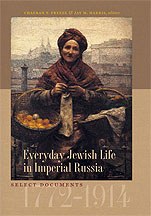From: Jan Meisels Allen <janmallen@att.net>
To: IAJGS Leadership Forum <leadership@iajgs.org>
Cc:
Bcc:
Date: Tue, 27 Nov 2018 21:48:35 -0800
Subject: [IAJGS Leadership] Updates on Nazi Stolen Artwork
Recently Haaretz, an Israeli newspaper, posted several stories about Nazi stolen artwork.
Haaretz is a subscription newspaper to read the article one must be registered. Registration is free.
Forty-two Dutch Museums contain stolen art from Jews from World War ll according to a report by the Dutch Museums Association. The stolen art comprise 83 paintings, 26 illustrations, and 13 Judaica objects taken between 1933 and 1945.
The Dutch royal family returned a painting to the original owners in 2-015, that had been purchased by former Queen Juliana. The painting was purchased without knowing the source.
The museums involved include the Rijksmuseum, Stedelijk Museum, Boijmans Van Beuningen Museum. The Rijksmuseum has 25 works on the Dutch Museums Association List , and research continues on other works of art at the museum.
See:
The Museale Verwervingen project, (https://www.
According to the website those who think they may be legal heirs to one of the identified works can file a claim established to examine the matter. Since 2002, 460 works in Holland have been returned to their Jewish owners from museums, private collections and public institutions. The project involved 163 museums, 42 of which included works that found their way to the list.
To view the art pieces see: https://www.
The restitution committee and how to file a request are available at:
 ook makes accessible—for the first time in English—declassified archival documents from the former Soviet Union, rabbinic sources, as well as previously untranslated memoirs, illuminating everyday Jewish life as the site of interaction and negotiation among neighbors, society, and the Russian state, from the beginning of the nineteenth century to World War I. Focusing on religion, family, health, sexuality, work, and politics, these documents provide an intimate portrait of the rich diversity of Jewish life. By personalizing collective experience through individual life stories—reflecting not only the typical but also the extraordinary—these sources reveal the tensions and ruptures in a vanished society. An introductory survey of Russian Jewish history from the Polish partitions (1772–1795) to World War I, along with prefatory remarks, textual annotations, and a bibliography of suggested readings, combine to provide a new perspective on the history of the Jews of Russia.
ook makes accessible—for the first time in English—declassified archival documents from the former Soviet Union, rabbinic sources, as well as previously untranslated memoirs, illuminating everyday Jewish life as the site of interaction and negotiation among neighbors, society, and the Russian state, from the beginning of the nineteenth century to World War I. Focusing on religion, family, health, sexuality, work, and politics, these documents provide an intimate portrait of the rich diversity of Jewish life. By personalizing collective experience through individual life stories—reflecting not only the typical but also the extraordinary—these sources reveal the tensions and ruptures in a vanished society. An introductory survey of Russian Jewish history from the Polish partitions (1772–1795) to World War I, along with prefatory remarks, textual annotations, and a bibliography of suggested readings, combine to provide a new perspective on the history of the Jews of Russia.